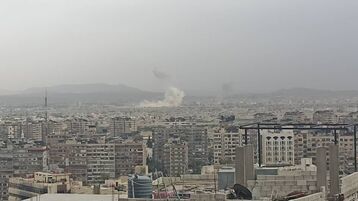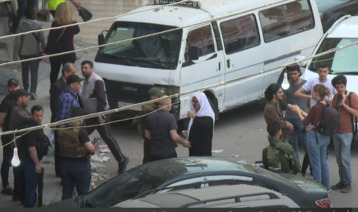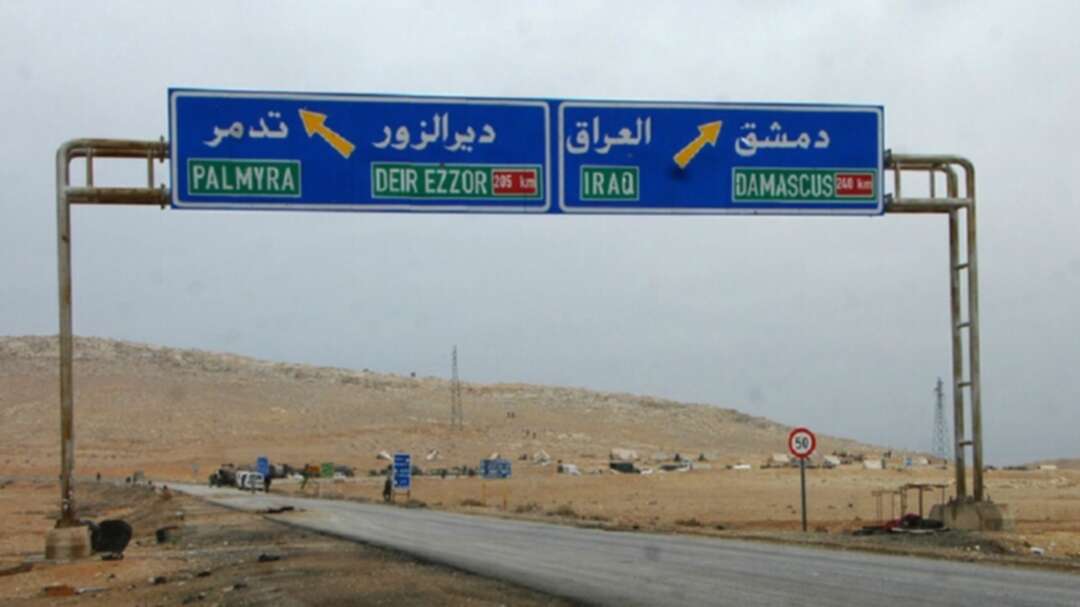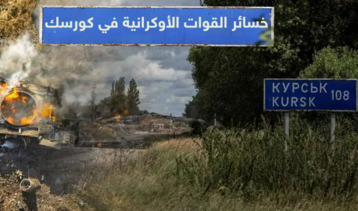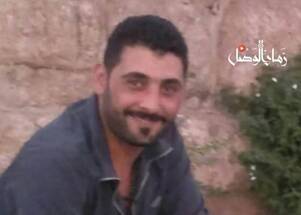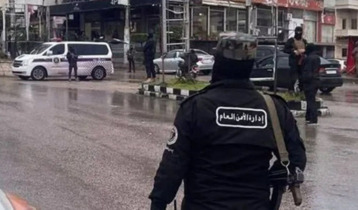-
Report sheds light on Qatar-owned bank dealings with terrorist-linked groups
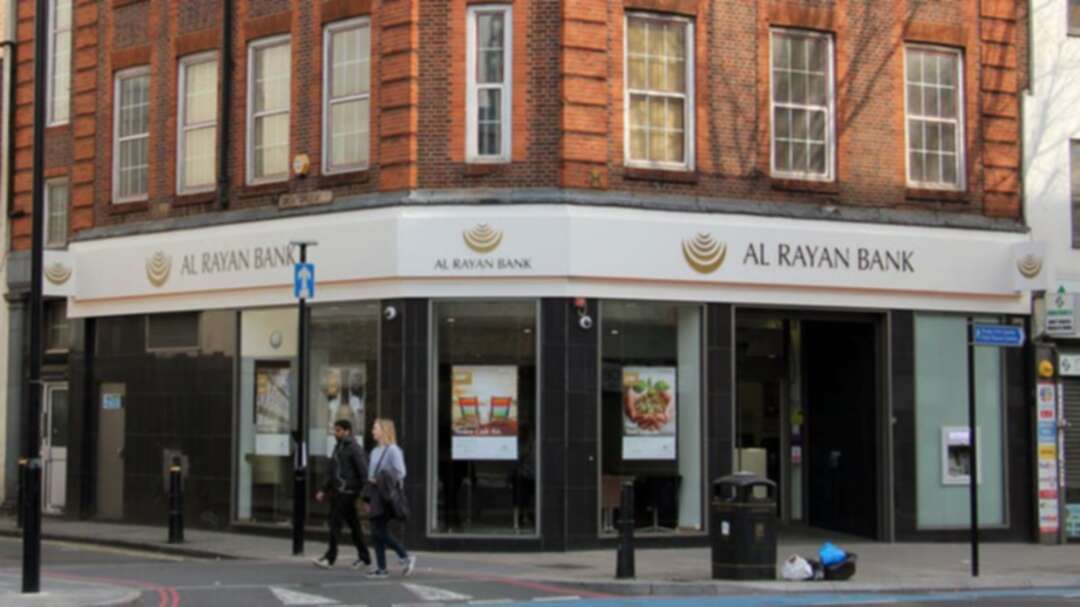
The Qatari-owned Al Rayan Bank, an Islamic bank based in the UK, provides services to organizations linked to terrorism in Britain, according to a report by the British daily The Times.
“Al Rayan counts among its customers a charity banned in the US as a terrorist entity, groups that promote hardline preachers and a mosque whose long-term trustee is a Hamas leader,” The Times reported in its investigation on Monday.
The Times investigation revealed that Al Rayan Bank has several clients who have had their accounts in other banks closed or frozen due to a security clampdown. Although the bank meets all the legal requirements to operate in Britain, at least four of its clients have had their other accounts closed in banks including HSBC, Barclays, NatWest and Lloyds TSB.
The bank is described as an “Islamic bank” that offers Sharia-compliant financial services to customers with branches across the UK in Birmingham, London, Leicester, Manchester, and Glasgow.
According to The Times, the controlling shareholders of the bank are institutions of the Qatari state. Al Rayan is 70 percent owned by Masraf Al Rayan QSPC, which is Qatar’s second-largest bank and has close ties to the Qatari state.
The Government of Qatar directly owns 9.31 percent of Masraf Al Rayan, and owns other shares through subsidiary companies such as Qatar Holding LLC (11.9 percent) and the Qatar Investment Authority (4.2 percent), according to data from the stock market analysis site Market Screener.
This is not the first time a Qatari-owned bank has been accused of funding terrorism. Khalifa al-Subaiy, who was convicted on charges of funding and enabling terrorism and is on the UN terror blacklist, was allowed by the UN to withdraw a monthly amount of up to $10,000 from frozen accounts with the state-owned Qatar National Bank (QNB).
Controversial clients
Al Rayan’s customers include designated terrorist organizations and controversial groups linked to Hamas, according to The Times.
Using publicly available records, The Times drafted a list of organizations which have an Al Rayan bank account, including pressure groups, charities, mosques, and funders of satellite TV channels.
One group with an Al Rayan account is Interpal, a Palestinian aid charity which has been designated as a terrorist entity by the US Treasury due to alleged funding links to Hamas. The British government identified Interpal as part of Hamas and the Muslim Brotherhood’s British infrastructure in 2015, and its banking facilities were previously withdrawn by Natwest in 2007 and Lloyds TSB in 2008.
The Nectar Trust, previously known as Qatar Charity UK, also has an account with Al Rayan. The Times claims The Nectar Trust has received more than £37 million ($44.9 million) from Doha-based Qatar Charity and is partners with the Emaan Trust, a group whose leaders have close links to the Muslim Brotherhood, in England’s northern city of Sheffield. The Nectar Trust has been accused of founding mosques in Europe which are allegedly pro-Muslim Brotherhood.
The Times also found an Al Rayan account for an Islamic charity whose leader is banned from the UK. The Islamic Reseach Foundation International is led by Indian televangelist Zakir Naik, who was banned from the UK in 2010 following a history of controversial comments.
Naik claims that 9/11 was an inside job and has praised Osama bin Laden, saying that “every Muslim should be a terrorist” if it meant fighting the US. Naik’s satellite channel Peace TV has promoted hardliner views including four programs which breached broadcasting rules on hate speech, abuse, offense, and incitement to crime, according to an investigation by the UK regulator Ofcom.
Al Rayan also has links with several other organizations including schools and mosques which have had their accounts closed by other British banks, including the Finsbury Park Mosque, where hate preacher Abu Hamza was based in the 1990s, and charity Helping Households Under Great Stress, which supports “Muslim households impacted by counter-terrorism, national security and extremism-related laws, policies and procedures.”
Abu Hamza was the imam of Finsbury Park Mosque in London, where he preached extremism. He is currently serving a life sentence in prison in the United States, after being found guilty of eleven terrorism charges in May, 2014.
Tags
You May Also Like
Popular Posts
Caricature
BENEFIT Sponsors BuildHer...
- April 23, 2025
BENEFIT, the Kingdom’s innovator and leading company in Fintech and electronic financial transactions service, has sponsored the BuildHer CityHack 2025 Hackathon, a two-day event spearheaded by the College of Engineering and Technology at the Royal University for Women (RUW).
Aimed at secondary school students, the event brought together a distinguished group of academic professionals and technology experts to mentor and inspire young participants.
More than 100 high school students from across the Kingdom of Bahrain took part in the hackathon, which featured an intensive programme of training workshops and hands-on sessions. These activities were tailored to enhance participants’ critical thinking, collaborative problem-solving, and team-building capabilities, while also encouraging the development of practical and sustainable solutions to contemporary challenges using modern technological tools.
BENEFIT’s Chief Executive Mr. Abdulwahed AlJanahi, commented: “Our support for this educational hackathon reflects our long-term strategic vision to nurture the talents of emerging national youth and empower the next generation of accomplished female leaders in technology. By fostering creativity and innovation, we aim to contribute meaningfully to Bahrain’s comprehensive development goals and align with the aspirations outlined in the Kingdom’s Vision 2030—an ambition in which BENEFIT plays a central role.”
Professor Riyadh Yousif Hamzah, President of the Royal University for Women, commented: “This initiative reflects our commitment to advancing women in STEM fields. We're cultivating a generation of creative, solution-driven female leaders who will drive national development. Our partnership with BENEFIT exemplifies the powerful synergy between academia and private sector in supporting educational innovation.”
Hanan Abdulla Hasan, Senior Manager, PR & Communication at BENEFIT, said: “We are honoured to collaborate with RUW in supporting this remarkable technology-focused event. It highlights our commitment to social responsibility, and our ongoing efforts to enhance the digital and innovation capabilities of young Bahraini women and foster their ability to harness technological tools in the service of a smarter, more sustainable future.”
For his part, Dr. Humam ElAgha, Acting Dean of the College of Engineering and Technology at the University, said: “BuildHer CityHack 2025 embodies our hands-on approach to education. By tackling real-world problems through creative thinking and sustainable solutions, we're preparing women to thrive in the knowledge economy – a cornerstone of the University's vision.”
opinion
Report
ads
Newsletter
Subscribe to our mailing list to get the new updates!

